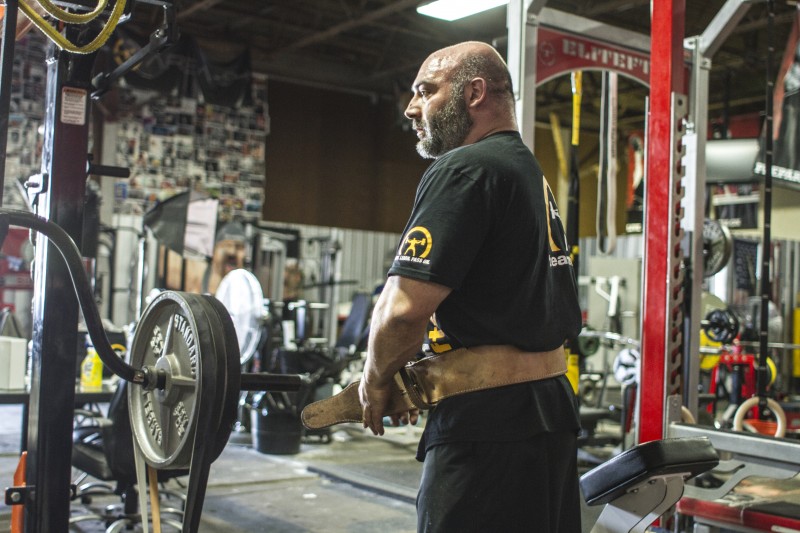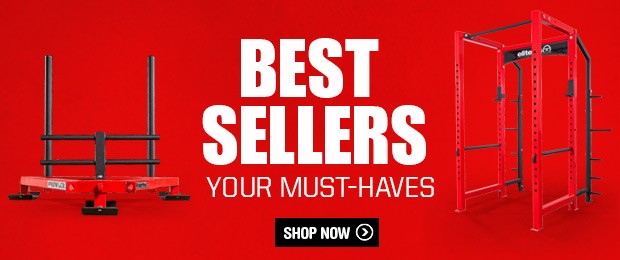
One of the cool aspects of my job is that I have the ability to travel and speak at conferences. I really enjoy this part of my job. It's a win-win situation. Not only does it help others learn about the university I work at, but it helps me learn from the questions that people ask. I'm not in any way a "my way or the highway" coach or presenter. I believe that you need to do what is best for your athletes, but at conferences, I'm reminded that too often coaches know what others should be doing. The ironic thing is the coaches who say this aren't able to give specific examples.
A few years ago, I sat on a panel of strength coaches, and one of the attendees asked us the question, "What were your biggest mistakes?" I was next to last to speak, so I listened to all the others first. But one thing stood out—few used specific examples. Everyone admitted that they made mistakes in their coaching, yet few specified what mistakes they had made. With this said, I want to tell you about some of my biggest mistakes, how I learned from them, and how I tried to fix the issues.
1. Not communicating enough to head coaches (and not understanding the power of assistant coaches)
This is a two-parter because they're very interconnected. As strength coaches, we're known to work long and hard hours, and often we neglect speaking to our coaches. This is beyond a sin in our profession. When you don’t speak to your coaches, they get the information from other sources. These sources could be the athletes, athletic trainers, other coaches, or the administration. Knowing this, let me ask you this question: who do you trust to explain what you're doing? If you don't have the ear of the head coach, you're a dead man breathing (Hatebreed reference).
Tying into this issue is knowing the power and influence of assistant coaches. The issue is that often the head coach tells an assistant to “deal with the strength coach.” I've had many coaches assign a completely green 24-year-old graduate assistant or young assistant to communicate with me. One thing I've learned is that young assistants often (not always) believe that their college strength coach has the answers. Have you ever heard, “When I was an athlete, we did …” I've heard this more than I want to.
To combat this, speak openly and frankly with these coaches while making sure to find common ground with them.
2. Using the word 'but' when speaking to people at work
This is one of the best things that I've learned in the last five years. Replace the word 'but' with 'and.' You'll be amazed at how conversations change.
Here's an example—the coach says to you, “We need to squat more because when I was in college, we squatted three days a week.” If your response is, “ But Coach, squatting three times a week is too much axial loading in the frontal plane to increase our performance while avoiding injury,” try saying instead, "Coach, I want to make sure we get this done right. You want to squat three days a week, and I was thinking maybe we could do a goblet squat one day, a front squat another, and a back squat on the third.” Notice how I turned the possible disagreement into an affirmation of what the coach wanted and added my own twist to the conversation. Some may say that this is lying, and I’ll disagree. This is Communication 101.
Find common ground and then add your 'and' to the conversation.
3. Burning the candle at both ends
I once took a job that required me to go to a gym and train people from 4:30 am to 9:00 am. Then I would go to the university to work with my teams until 4:00 pm and then I went back to the gym until 8:00 pm or 10:00 pm, depending on the night. Some might say that I was paying my dues. While I see their point, I can’t agree and I was ignoring my family and friends. During this time, my best friend from high school died, my sister and parents moved multiple times, and my girlfriend (now wife) was left home alone to walk the dog. This may fly in the face of what we're told in our profession, but I’ll still say this—take the day off, and take care of yourself.
I found Headspace a few years ago and dedicate some time every day to meditation. I've also added meditation in for some of my teams.
4. Underestimating your athletes
One of my former football players signed this week with the Atlanta Falcons. Coming from a small FCS university, this doesn't happen too often. This young man was a starting cornerback for us, and going into his senior year, he benched 405 pounds and squatted 530 pounds at corner. If you know football, you know that these are impressive numbers. The lesson I learned from him is that “it’s only gravity; that’s all it is.” This was one of the mantras he would say to me before a big lift or sometimes a warm up or just anytime he wanted to remind me of this fact.
Last off-season, this young man was doing his squat session. His max at the time was 475 pounds on the squat. I forget the working sets exactly, but it was something similar to 3 X 3 at 80 percent and then 3–5 X 1+. I use this set and rep scheme often. The idea is that if the athlete feels good and wants to work up, he can. If not, he has the option to stay at 80 percent. On this day, this athlete's third set was 455 pounds. He smoked it and said, "Coach! Plate!" My response was, "Let’s hit 100 percent first and then maybe go for a PR." Then the trash talking started. I heard, “It’s only gravity; that’s all it is.” After a few minutes back and forth, I asked his rack coach to move so that I could spot the young man, and I said, "You want it? Let’s go put 500 on the bar."
I was telling him that he would miss and talking lots of trash (yes, sometimes it’s OK to be negative). Even while he unracked the bar, I was still in his ear while spotting. I remember getting ready to catch 500 pounds when he missed it, but what happened next amazed me. He doubled it, and I heard it again, “It’s only gravity; that’s all it is.”
That day I learned that these young men and women we work with can do more than we often give them credit for, so push them to not be afraid of success.
5. Not returning calls and emails
Every time someone calls you or emails you, it's a huge compliment. That person contacted you to learn from you, and you have something to offer that person. Ryan Horn had a great social media post about this the other day. He said that he had contacted over 50 schools to get an internship, and I was the only one who returned his call. Ryan knows words about training that I've never even heard. I have no doubt that he is one of the smartest strength coaches around. If I hadn't returned his call, I couldn't claim that all of his success is based on my mentoring (which isn’t true and I'm going to keep saying this). Right now, I have about 200 unread emails in my inbox, so I'm still making this mistake, but I'm trying to improve.
I will add one caveat to this. For the young strength coaches reading this, the best way not to get a return email or call is to ask if I’m hiring. As I stated at the beginning when you send an email, it's because you want something from the person you're emailing, so don’t email and say, “Hey, I need a job.”
How about trying something like, "I would love to come visit sometime and see how you run your groups." This will go over much better.
These are five real mistakes that I've made more times than I can count. My advice is to review the five mistakes you've made and share them with someone around you to make that person better.












2 Comments